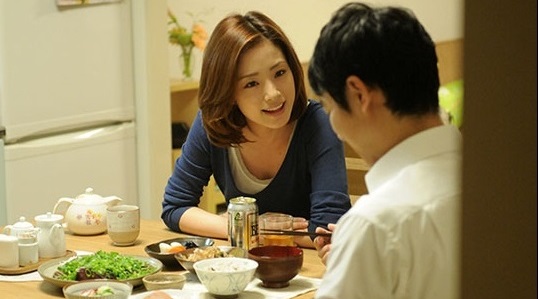Dating culture varies significantly across different countries and cultures, and Japan is not any exception. Japanese dating tradition is rooted in traditional values and customs, whereas also embracing fashionable influences. It is a novel mix that provides an intriguing glimpse into the nation’s wealthy historical past and quickly evolving social dynamics. In this text, we are going to delve into numerous elements of Japanese dating tradition, exploring its customs, rituals, and the challenges faced by individuals seeking romance on this fascinating society.
The Pursuit of Love: A Balancing Act
In Japanese relationship culture, there’s a delicate balance between maintaining individual needs and conforming to societal expectations. The pursuit of love is usually formed by traditional values such as filial piety, respect for elders, and the importance of household. These influences can be seen within the idea of "enkō" or "compensated courting," the place older men supply financial help to youthful women. While this practice has garnered controversy and criticism, it sheds mild on the complexities and compromises inherent in Japanese courting tradition.
The Role of Matchmakers: Navigating the Path to Love
In traditional Japanese relationship tradition, matchmakers played a big position in bringing couples collectively. These professionals, known as "nakōdo," possessed detailed information of eligible people within their communities. They would rigorously think about compatibility components such as social status, family background, and private interests. Although the position of matchmakers has diminished in trendy Japanese society, their affect can nonetheless be felt in the emphasis on compatibility and the significance of introductions by way of mutual acquaintances.
Modernization and the Rise of Online Dating
As Japan embraces modernization, on-line relationship platforms have turn out to be increasingly popular. These digital areas provide a platform for people to connect and explore potential romantic relationships. However, even in the digital realm, Japanese relationship tradition stays distinctive. Many on-line relationship platforms in Japan give consideration to fostering long-term relationships and prioritize marriage as the last word objective. This give consideration to dedication sets Japanese on-line relationship apart from extra informal and short-term courting cultures found in different components of the world.
Dating Etiquette: Navigating Unspoken Rules
Japanese courting tradition is guided by a set of unspoken guidelines that could be unfamiliar to those from different backgrounds. Understanding these nuances is crucial for navigating the relationship scene in Japan successfully. Here are some key elements of dating etiquette in Japanese tradition:
-
Gōkon: Gōkon refers to group blind dates, where single women and men gather with their associates to socialize and potentially meet romantic companions. This group dynamic relieves some of the strain associated with one-on-one courting and offers a more relaxed setting for preliminary encounters.
-
Kokuhaku: The act of "kokuhaku" refers to a confession or declaration of 1’s emotions. In Japanese relationship tradition, it’s customary for people to clearly express their romantic interest earlier than partaking in a relationship. This simple approach helps keep away from ambiguity and allows each parties to know each other’s intentions.
-
PDA (Public Displays of Affection): Public displays of affection usually are not as frequent in Japanese dating tradition in comparability with Western countries. Couples in Japan often favor to maintain a more reserved and private demeanor in public. While small gestures such as holding arms may be acceptable, overt displays of affection are generally discouraged.
-
Gender Roles: Traditional gender roles still affect Japanese relationship tradition to some extent. Men are often anticipated to take the lead in pursuing romantic relationships, whereas ladies are encouraged to exhibit extra demure and reserved habits. It is essential to concentrate on these cultural expectations whereas additionally respecting particular person preferences and limits.
Challenges Faced by Japanese Singles within the Dating World
Despite the vibrant relationship tradition in Japan, many individuals face distinctive challenges when in search of romance. The concept of "hikikomori," or social withdrawal, is prevalent among some younger Japanese adults. The pressures of conformity, high societal expectations, and the demanding nature of work life can contribute to feelings of isolation and hinder the pursuit of romantic relationships.
Furthermore, the rise of know-how and rising reliance on social media has created new obstacles. The prevalence of digital connections and online interactions can typically make it tough to establish real and meaningful connections in the offline world.
Conclusion
Japanese courting tradition is an interesting mix of custom and modernization. It is deeply rooted in historical values, while additionally embracing the influence of globalization and technological advancements. The intricate steadiness between private desires and societal expectations provides a unique dimension to the pursuit of affection in Japan. By understanding and appreciating this complicated cultural landscape, individuals can navigate the courting scene with higher empathy and respect. Whether one chooses to follow conventional customs or explore the realm of online courting, the richness of Japanese dating tradition presents a captivating journey into the intricacies of human connection.
FAQ
-
What are the normal gender roles in Japanese dating culture?
In Japanese dating culture, traditional gender roles dictate that males are expected to be the initiators and suppliers in a relationship, while girls are sometimes inspired to be more passive and demure. This can manifest in men planning and paying for dates, and girls displaying respect and displaying feminine qualities. -
How does the concept of "kokuhaku" impression Japanese courting culture?
"Kokuhaku," that means confession, is an important step in Japanese courting culture. Rather than partaking in informal dating, people usually wait for a particular second of confession to express their emotions to somebody they are thinking about. This is taken into account a substantial milestone, because it demonstrates the seriousness and commitment behind the connection. -
What is the significance of group relationship or "goukon" in Japanese courting culture?
Group dating, often recognized as "goukon," performs a significant role in Japanese courting tradition. It is a typical way for young adults to meet potential partners in a extra relaxed and social setting. By collaborating in goukon, individuals have the chance to interact with others who share related pursuits or backgrounds, rising their chances of discovering a suitable match. -
How does the idea of "omiai" differ from fashionable courting practices in Japan?
"Omiai" is a conventional Japanese matchmaking apply where individuals are launched to a minimum of one one other by a third celebration, usually family members or skilled matchmakers. This differs from fashionable dating practices, as omiai focuses on components such as compatibility in schooling, profession, and social standing, quite than solely on personal attraction or chemistry.
of one one other by a third celebration, usually family members or skilled matchmakers. This differs from fashionable dating practices, as omiai focuses on components such as compatibility in schooling, profession, and social standing, quite than solely on personal attraction or chemistry. -
What position does social pressure play in Japanese relationship culture?
Social strain is important in Japanese relationship tradition, as individuals often really feel the expectation to adapt to societal norms and expectations. This can lead to stress to find a associate, get married by a sure age, or maintain a conservative and modest image. However, the youthful era can be challenging these traditional expectations, embracing more individualistic and non-traditional courting practices. -
How does the concept of "enjo kosai" impact Japanese dating culture?
"Enjo kosai" refers to compensated relationship, where older individuals financially support younger companions in change for companionship or romantic involvement. While not consultant of the broader dating culture, the existence of enjo kosai raises issues about societal pressures, the objectification of ladies, and the influence of materialism on relationship dynamics. -
What function do parents play in Japanese relationship culture?
Parents often have a significant influence on their kids’s dating lives in Japan. Matchmaking, arranged marriages, or introducing potential partners through omiai are some ways mother and father could additionally be concerned. However, as societal values shift, youthful generations are increasingly asserting their independence, relying much less on parental involvement in their relationship choices.
